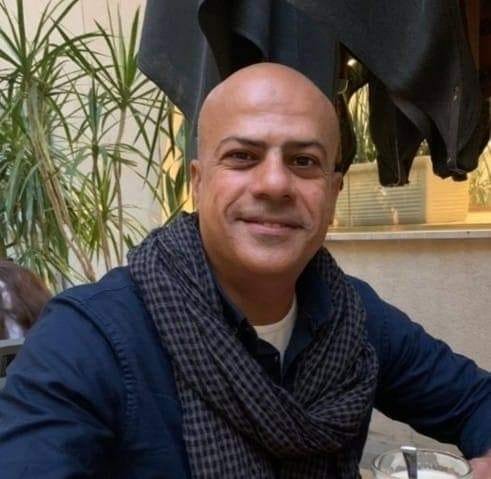The German Federal Police has warned its country’s delegation to the Climate Conference “COP 27”, which is currently being held in the Egyptian city of Sharm el-Sheikh, that they may be vulnerable to spying from Egyptian security agents, according to Reuters news. This comes in conjunction with what the Associated Press revealed, as the United Nations is investigating allegations of misconduct by Egyptian police officers participating in securing its area at the conference. The reports came after the attendees of the Germany pavilion in “COP 27” complained that they were photographed and videotaped after hosting the pavilion on November 9, which was an event attended by Sana Seif, the sister of the arrested activist and blogger Alaa Abdel Fattah, in which she spoke about the case of her brother who has been on hunger strike for more than 220 days.
Reuters quoted three sources saying that German delegates at the climate summit had received warnings of “overt and covert surveillance through photography and video” by Egyptian agents. The notice also included the possibility that people loyal to the Egyptian authorities would try to disrupt events organized by the Germans “through provocative actions.” Two German members of an NGO participating in COP27 said they had noticed suspicious activity in recent days, including being followed and photographed. They agreed with a third source that they had received verbal warnings from other participants and delegations about possible surveillance.
Germany called on Egypt to stop this sort of activity. The German Foreign Ministry said in a statement, “We expect that all participants in the United Nations climate conference will be able to work and negotiate under safe conditions, not only for the Germans but for all delegations, as well as representatives of civil society and the media. We are in constant contact with the Egyptian side in this regard.” Because of what happened, the United Nations announced that it was investigating allegations of misconduct by Egyptian police officers who worked in territories considered UN territories, which indicated that it had hired several Egyptian officers to help secure the place due to the complexity of the process of providing security in this area on a large scale, confirming that their work is done under the supervision of the United Nations Department of Safety and Security.
This came days after security experts warned that the Egyptian regime could use the Climate Summit application to monitor opponents and critics. The Guardian newspaper said in a report that the official application of the summit requires obtaining the consent of the subscriber to allow him to determine his location, access his photos, and even his e-mail to be able to download the application, which made experts in the field of cybersecurity warn of the consequences of this.
The report fears that “the oppressive regime in Egypt will be able to use the official platform of a United Nations event to track and harass participants and political opponents.” He added: “The Egyptian regime can use this data to carry out a more significant crackdown on dissidents in a country that is already witnessing the arrest of more than 65,000 political opponents and which also witnessed a series of mass arrests in the days preceding the start of the conference, isolating any dissenting voice and prevented any person from reaching any place near the summit venue. “This app is exceptionally vicious,” said Jenny Gebhardt, the Electronic Frontier Consulting Foundation director. “The most suspicious thing is the many requirements that must be approved and have nothing to do with the application’s operation, which is likely helping to seek to monitor users.”
According to Hussein Bayoumi, an official at Amnesty International, “the organization’s security experts reviewed the application, and warned of several points in it, before the summit, including the application’s ability to access users’ phone cameras, listen to what is going on around them, and operate the “Bluetooth” system and determining their location, as well as access to any other application on users’ devices. Bayoumi told the Guardian, “The problems they found are precisely the requirements that the application demands, and if this is accepted, it will allow the application to be used to monitor you, collect your data, and send it to two servers, one of them in Egypt, and the authorities do not say anything about all this data-collecting operation, nor how can they exploit this huge amount of data related to this number of users.”





Recent Comments